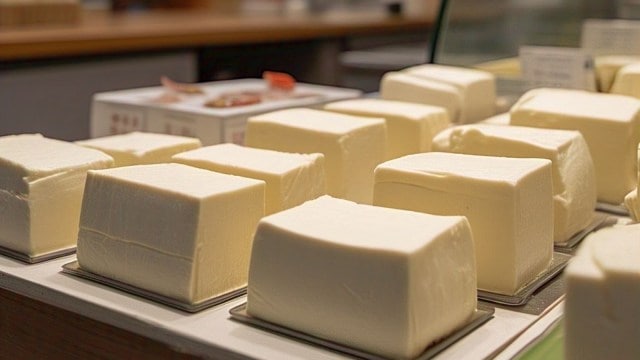After inspections, food safety officials flag concern over contamination of paneer in Bengaluru
As of March 17, officials have collected 163 paneer samples from across Karnataka; 2 of the 17 samples collected from Bengaluru were deemed unsafe for consumption.
 Industry experts have raised concerns over the quality of paneer, being linked to substandard milk used in production. (AI generated image)
Industry experts have raised concerns over the quality of paneer, being linked to substandard milk used in production. (AI generated image)The Karnataka Department of Food Safety and Public Health has said it has found bacterial presence and the use of non-dairy additives in the unbranded paneer supplied in Bengaluru following recent inspections. The department’s large-scale inspection, which began in early March, was conducted as per the direction from the Chief Minister’s Office (CMO) amid growing complaints of adulteration and bacterial contamination.
The survey, led by Food Safety Commissioner Srinivas K, focused on detecting harmful additives, bacterial contamination, and violations of food safety standards in dairy products. As of March 17, officials have collected 163 paneer samples from across Karnataka, including 17 from Bengaluru.
According to Srinivas, preliminary tests conducted by the food safety department have confirmed that two of the 17 paneer samples in Bengaluru were deemed unsafe for consumption. “Statewide, only four of the 163 samples had been analysed by March 18, with those found to be free from adulteration. The remaining samples are still undergoing tests, and more detailed findings are expected in the coming weeks,” Srinivas said.
The department is continuing its analysis of the remaining paneer samples, with stricter measures expected against violators under the Food Safety and Standards Act, 2006, he added.
Officials said they have employed a multi-tiered approach to ensure rigorous quality checks, including, microbial analysis involving testing for harmful bacteria like Salmonella and Listeria, chemical assessment for detecting non-dairy additives such as starch and vegetable oils, and supply chain verification for investigating sources of paneer, especially unbranded products that often cost significantly less than branded varieties.
Industry experts have raised concerns over the quality of paneer, being linked to substandard milk used in production. “Cheaper, unbranded paneer — sometimes sourced from Tamil Nadu and sold at Rs 150 per kg compared to Rs 400 per kg for branded products like Nandini — poses a higher risk of contamination,” Subramanya Holla S, Bangalore Hotels Association president.
In addition to inspecting the paneer, food safety officials also inspected ice cream and cool drink manufacturing units in Bengaluru on March 26 and 27, imposing fines worth Rs 62,000 on unhygienic establishments.
While food safety officials have also advised consumers to exercise caution when purchasing paneer, especially from unverified or unbranded sources, hotel industry representatives, including Krishna Raj of Nisarga Grand Hotel, have urged a shift towards trusted brands to minimise health risks.
How is paneer adulterated?
According to food safety officials, paneer adulteration involves adding cheaper, non-dairy substances to reduce costs while mimicking its texture and appearance. Commonly, vegetable oils like palm or soybean are mixed with milk to increase fat content, compromising its nutritional value and taste.
Starch or flour is added to thicken the mixture, making it appear denser, though it affects digestibility, officials explained. Skimmed milk powder or low-quality milk solids are often used instead of full-cream milk, reducing protein content.
In some cases, officials pointed out that synthetic chemicals like detergents or urea are introduced to whiten paneer or enhance its yield, posing serious health risks. Adulteration may also occur through unhygienic processing, leading to bacterial contamination like Salmonella or Listeria.











